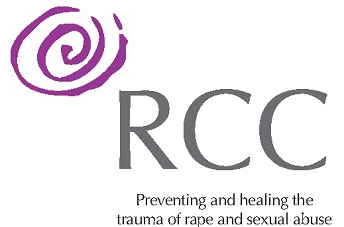Admitting to raping and sexually assaulting another does not make it any less serious or heinous - Opinion Editorial by DRCC’s CEO Ellen O’Malley Dunlop
14 July 2015

Sentencing is very important in cases of sexual violence because of the message that is inherent in the sentence as to how seriously rape and sexual assault is taken in society
Intimate partner sexual violence is possibly the most difficult crime to prosecute, particularly when you have only one person’s word against another’s. One person making the very serious accusation of having been raped and one person denying the accusation. There are no visible scars, no black eyes. However we know that most violent sexual crimes are perpetrated by someone known to the victim.
Last year the Dublin Rape Crisis Centre and Women’s Aid with the support of Cosc, the National Office for the prevention of Domestic Sexual and Gender Based Violence, ran a National Awareness Raising Campaign on the problem of intimate partner sexual violence. Rape Crisis Centres around the country and Women’s Aid had experienced more and more victims of this hidden crime, calling the Helplines and attending for therapy and breaking their silence. There was a significant increase in calls to both helplines during the course of the campaign with victims beginning the slow difficult process of talking about their horrendous experiences of rape and sexual assault by their partners and/or ex-partners. The sense of betrayal felt by the victims was palpable.
Rape is the second most serious crime on our statute books and so it should be because of the dreadful, and far too often, lifelong depilating effects it can have on the victim’s life. So when a case goes before our courts whereby the perpetrator admits to one count of rape and one count of sexual assault of his partner, it will attract a lot of attention. Attention from many quarters, from the media, the general public and those of us working in the field . But the most pertinent attention will be from of all those victims who have reported a similar crime perpetrated against them and whose cases have not got to court because of usually a lack of evidence. Or it will attract attention from those victims who have not reported the crime because the victim has been either too afraid and/or, too ashamed to report the crime. One in 10 report these crimes. Of the one in 10 only 7% get a conviction. In Ireland we have one of the highest fall outs from actual reporting to getting to court.
In the case of the Magnus Meyer Hustveit we witnessed an unusual situation whereby he admitted that he had raped and sexually assaulted his partner. His victim did not have to endure the harrowing experience of the court process and she delivered a very heart rendering victim impact statement as was her right. He received a suspended sentence of 7 years. While 7 years is a very serious sentence and it reflects the gravity of the crime committed against his ex-partner, however having the full 7 years suspended sends out a very bad message to other victims of this most heinous silent crime in Irish Society.
We want more victims to come forward and to report these crimes so that the perpetrators will not be afforded the ability to commit these most heinous crimes of rape and sexual assault with impunity. The fact that an accused person admits to the crime of rape and sexual assault does not made the crime against his victim any the less serious or heinous and the sentence should reflect this reality. We want more victims to stay the course of the criminal justice system so that they can get justice and perpetrators will not be allowed to perpetrate these crimes with impunity. We would also urge Minister Frances Fitzgerald to bring the New Sexual Offences Bill before the Dail before the end of this term.
The National 24-Hour Helpline for victims of rape and sexual assault is 1800 77 88 88.
Ellen O’Malley-Dunlop, CEO
Dublin Rape Crisis Centre.
July 2015.